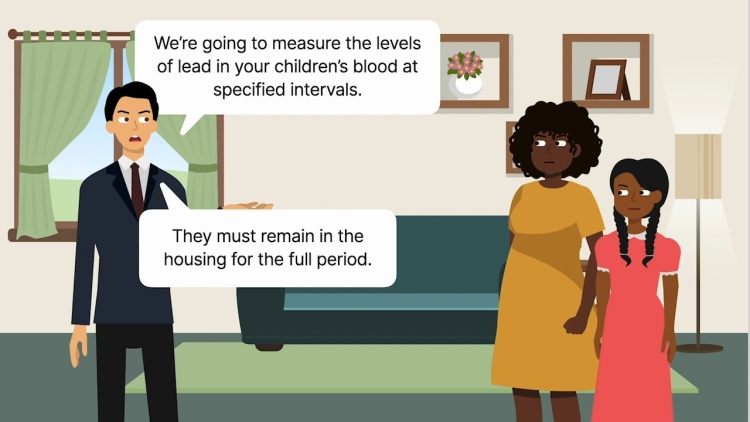Grimes v. Kennedy Krieger Institute, Inc.
Maryland Court of Appeals
366 Md 29, 782 A2d 807 (2001)
- Written by Craig Conway, LLM
Facts
The Kennedy Krieger Institute, Inc. (KKI) (defendant), an affiliate of Johns Hopkins University, created a non-therapeutic research program involving lead paint in rental homes around Baltimore, Maryland. The research project targeted primarily low-income and minority residents and encouraged landlords to rent the properties to families with young children. KKI planned to test the children’s blood over a number of years to see the extent to which it became contaminated with lead. KKI approached the families and had them sign consent documents agreeing to participate in the study. There was no clear explanation in the consent agreements that the research involved exposing the children to lead and testing children’s blood for lead. For their participation, families received nominal financial compensation ranging from $5 to $15. KKI’s research protocols were approved by the entity’s Institutional Review Board (IRB) which was required to additionally review the safety and health hazard impact on human subjects, including vulnerable subjects like children. Viola Hughes and her daughter, Erica Grimes, (plaintiffs) were participants in the study. KKI found lead “hot spots” in Hughes’ home and tested Grimes’ blood which was significantly contaminated with lead. KKI notified Hughes of the blood test results after the “hot spots” were detected. After learning of the hot spots and Grimes’ blood work results, Hughes and Grimes ceased participation in the study and moved out of their home. They and several other affected families sued KKI alleging that it failed to timely warn them that lead exposure was contemplated by the study. The trial court granted KKI’s motion for summary judgment, holding it had no legal duty to warn Hughes and Grimes. Hughes and Grimes appealed.
Rule of Law
Issue
Holding and Reasoning (Cathell, J.)
Concurrence (Raker, J.)
What to do next…
Here's why 907,000 law students have relied on our case briefs:
- Written by law professors and practitioners, not other law students. 47,100 briefs, keyed to 996 casebooks. Top-notch customer support.
- The right amount of information, includes the facts, issues, rule of law, holding and reasoning, and any concurrences and dissents.
- Access in your classes, works on your mobile and tablet. Massive library of related video lessons and high quality multiple-choice questions.
- Easy to use, uniform format for every case brief. Written in plain English, not in legalese. Our briefs summarize and simplify; they don’t just repeat the court’s language.





